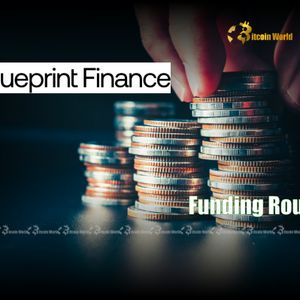BitcoinWorld Korean CEO Embezzlement Scandal: $18.7M Stolen for Crypto & Debts A shocking case has emerged from South Korea, intertwining traditional business with the often-volatile world of digital assets. The head of a construction firm in Cheongju is now facing serious charges, accused of a massive financial crime that allegedly involved diverting company funds towards cryptocurrency investments and settling personal debts. This incident shines a spotlight on the potential for financial misconduct when traditional structures meet new asset classes, raising questions about oversight and corporate responsibility in the era of digital finance. For those tracking the intersection of finance and digital assets, this case represents a significant development. Unpacking the Shocking Korean CEO Embezzlement Case At the heart of this unfolding story is a prominent Korean CEO embezzlement case. According to reports from Yonhap News, the chief executive of a construction company based in Cheongju, South Korea, has been formally indicted. The indictment stems from allegations that the CEO misappropriated a staggering 25.9 billion won, which translates to approximately $18.7 million USD at current exchange rates. This significant sum was allegedly siphoned off from the company’s coffers over an extended period. The timeline of the alleged embezzlement is particularly lengthy, reportedly spanning from June 2012 all the way through January 2025. Such a prolonged period suggests a potentially systematic diversion of funds rather than an isolated incident. While the indictment has been made, the legal process is ongoing, and the specific details of how the funds were moved and utilized are expected to be further revealed as the case progresses through the South Korean judicial system. How Does This Crypto Crime Impact South Korea? This incident registers as a notable crypto crime South Korea has seen, primarily because of the alleged use of embezzled funds for cryptocurrency investments. While the CEO is also accused of using money to pay personal debts, the crypto connection adds a layer of complexity and public interest. South Korea has a vibrant and active cryptocurrency market, with a high rate of retail participation. However, this also makes the market susceptible to being associated with illicit activities, even if the crime originates in a traditional sector like construction. Cases like this can fuel public and regulatory skepticism towards digital assets. They can be cited by critics as evidence of the risks associated with cryptocurrencies, even when the underlying crime (embezzlement) is a long-standing issue in traditional finance. For the burgeoning crypto industry within South Korea, such high-profile scandals, regardless of their origin, can contribute to calls for stricter regulations and increased scrutiny, potentially impacting innovation and adoption. Key concerns arising from this case include: Reputational Damage: Associating crypto with fraud and embezzlement, even if only as a destination for stolen funds. Regulatory Pressure: Potentially increasing the urgency for more stringent oversight on both crypto platforms and cross-sector financial flows. Investor Confidence: While the crime didn’t originate from a crypto platform itself, the connection might erode confidence among potential investors. Beyond Crypto: The Construction Firm Fraud Unveiled While the crypto angle grabs headlines, it’s crucial to remember that the alleged crime is fundamentally a construction firm fraud case. The core accusation is the embezzlement of funds belonging to the company. This points to potential failures in corporate governance, internal controls, and financial oversight within the construction firm itself. How was a single individual, the CEO, allegedly able to divert such a significant amount of money over more than a decade without detection by internal audits, board oversight, or external auditors? The case is made even more complex by the mention of the CEO’s past allegations of collusion with local officials and police. If true, these past issues could suggest a pattern of behavior or potentially indicate systemic vulnerabilities that might have facilitated the alleged embezzlement. A construction firm, especially one dealing with potentially large contracts and public works, requires robust financial management and transparency. The alleged activities here starkly contradict these requirements. Aspects of the alleged construction firm fraud: Allegation Amount Involved Timeline Alleged Use of Funds Embezzlement 25.9 billion won ($18.7M USD) June 2012 – January 2025 Cryptocurrency investments, Personal debt repayment This situation highlights the critical importance of independent oversight and stringent financial controls in companies, regardless of their sector. The alleged duration and scale of the fraud suggest significant lapses. Identifying the Patterns of Financial Misconduct The alleged actions of the CEO fall squarely under the umbrella of financial misconduct . Embezzlement is a specific type of fraud where a person entrusted with funds or property illegally takes it for their own use. In this case, the alleged motive appears to be twofold: speculative investment in cryptocurrency and the necessity of paying off personal debts. This combination of motives is not uncommon in fraud cases, where individuals facing financial pressure (debts) may turn to risky ventures (like speculating with stolen funds in crypto) in an attempt to recover or get rich quickly. Identifying financial misconduct often involves looking for red flags such as: Unexplained wealth or lifestyle changes by executives. Lack of segregation of duties in financial processes. Weak internal controls and audit functions. Unusual or complex transactions. Excessive executive control over finances with little oversight. Past allegations or history of unethical behavior. The lengthy period over which the alleged embezzlement occurred suggests that these red flags either went unnoticed, were ignored, or were actively concealed. Understanding these patterns is crucial for preventing future incidents and strengthening corporate integrity. What This South Korea Crypto Scandal Means for Regulation This specific South Korea crypto scandal, while originating from traditional corporate fraud, will undoubtedly add fuel to ongoing discussions about regulating the digital asset space. While the crime wasn’t a crypto-native fraud (like a rug pull or exchange hack), it demonstrates how traditional illicit funds can flow into the crypto ecosystem. This raises questions about Know Your Customer (KYC) and Anti-Money Laundering (AML) procedures not just within crypto exchanges but also at the intersection points between traditional finance and crypto. Regulators in South Korea have been actively working on frameworks for digital assets. This case may accelerate efforts to ensure better tracking of large transactions, improved information sharing between financial sectors, and potentially stricter rules regarding the source of funds used for significant crypto investments. It underscores the challenge regulators face in monitoring capital flows across increasingly interconnected financial systems. Potential regulatory considerations: Strengthening AML/KYC rules for large crypto transactions. Improving cross-sector financial surveillance. Enhancing corporate governance requirements to prevent internal fraud. Increased cooperation between financial regulators and law enforcement regarding digital asset flows. Ultimately, this case serves as a stark reminder that while technology evolves, the fundamental motivations for financial crime often remain the same. Ensuring accountability requires vigilance across all sectors. Summary: The indictment of a Korean construction firm CEO for allegedly embezzling $18.7 million highlights a significant instance of financial misconduct, reportedly funding cryptocurrency investments and personal debts. This case, spanning over a decade, underscores potential weaknesses in corporate governance and adds to the narrative surrounding crypto crime in South Korea. As the legal proceedings continue, the incident prompts further discussion on regulating capital flows between traditional finance and digital assets, emphasizing the need for robust oversight to prevent fraud regardless of where the stolen funds end up. To learn more about the latest crypto crime trends, explore our articles on key developments shaping South Korea’s crypto landscape and financial regulation. This post Korean CEO Embezzlement Scandal: $18.7M Stolen for Crypto & Debts first appeared on BitcoinWorld and is written by Editorial Team


















